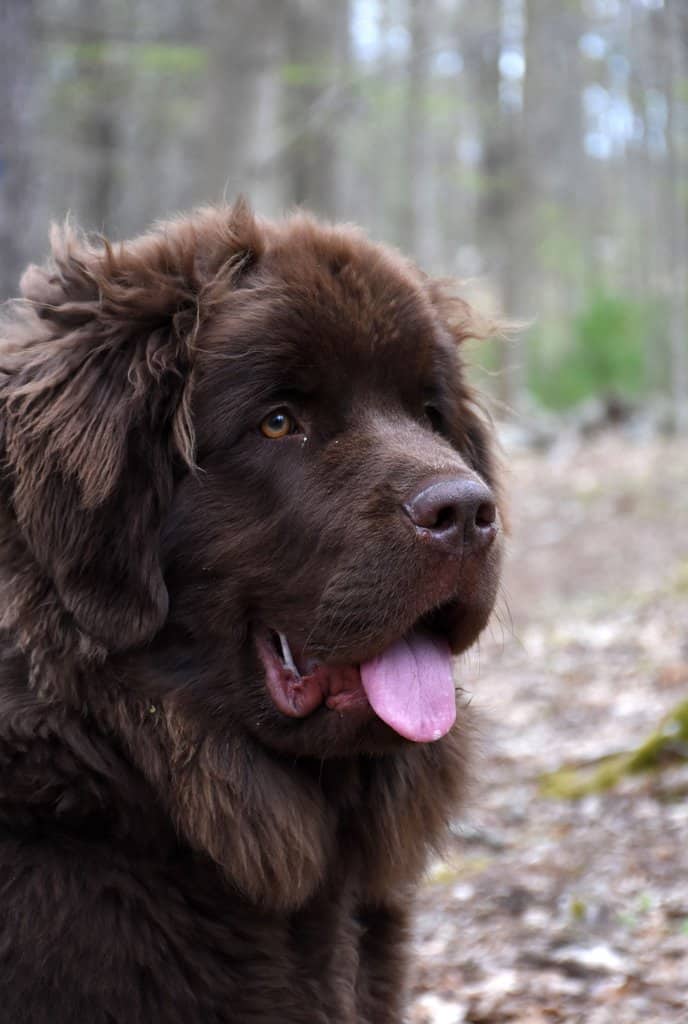Newfoundland dogs are large and strong working dogs that were originally bred for water rescue and hauling fishing nets in Newfoundland, Canada. These dogs are highly trainable and have a strong desire to please their owners, but they do require specific training to develop good behavior and manners.

The following are some types of training that are necessary for Newfoundland dogs:
- Basic obedience training: This type of training includes teaching your dog to respond to basic commands such as “sit,” “stay,” “come,” and “heel.” Basic obedience training will help you establish a good relationship with your dog and make it easier to teach more advanced skills.
- Socialization training: Newfoundland dogs are known for their friendly and gentle nature, but they still need to be socialized to different people, animals, and environments. Socialization training will help your dog feel comfortable and confident in various situations.
- Water rescue training: Since Newfoundland dogs were originally bred for water rescue, it is important to provide them with specific training in this area. This type of training will teach your dog how to swim, tow a boat, and rescue people from water.
- Draft work training: Newfoundland dogs are also used for draft work, which involves pulling heavy loads. Draft work training will help your dog develop the strength and endurance required for this type of work.
- Behavioral training: Newfoundland dogs are known for their drooling and shedding, which can be a challenge for some owners. Behavioral training can help you manage these behaviors and teach your dog appropriate manners.
What are some effective training methods for training Newfoundland dogs?
There are several effective training methods that can be used to train Newfoundland dogs, including:
- Positive reinforcement: This training method involves rewarding your dog for good behavior, such as obeying commands or exhibiting desirable traits. Rewards can include treats, praise, or playtime with a favorite toy. Positive reinforcement is an effective method for training Newfoundland dogs, as they respond well to praise and encouragement.
- Clicker training: Clicker training involves using a small device that makes a clicking sound to signal to your dog that they have performed a desired behavior. Clicker training can be used in combination with positive reinforcement to teach your dog new skills and commands.
- Leash training: Newfoundland dogs can be strong and powerful, so it is important to leash train them to ensure they can be safely controlled when out in public. Leash training involves gradually introducing your dog to wearing a leash and teaching them to walk calmly on a leash without pulling.
- Target training: Target training involves teaching your dog to touch a specific object, such as a target stick or a hand target, with their nose or paw. Target training can be used to teach a variety of skills, such as basic obedience commands or more complex behaviors.
- Desensitization training: Newfoundland dogs can be sensitive to loud noises or new environments, so desensitization training can be used to help your dog become more comfortable and confident in these situations. This involves gradually exposing your dog to the stimuli they are sensitive to, starting with a low level of exposure and gradually increasing over time.
Overall, effective training methods for Newfoundland dogs involve positive reinforcement, consistency, and patience. It is important to start training early and to remain consistent in your training approach to ensure your dog learns the desired behaviors and develops good manners.
Conclusion
In conclusion, Newfoundland dogs are intelligent and trainable, but they require specific training to develop good behavior and manners. Basic obedience training, socialization training, water rescue training, draft work training, and behavioral training are all important types of training that should be provided to Newfoundland dogs. Effective training methods for Newfoundland dogs include positive reinforcement, clicker training, leash training, target training, and desensitization training. With consistent and positive training, Newfoundland dogs can become well-behaved and happy companions.
If you liked this article (or if it helped at all), leave a comment below or share it with friends, so they can also know How can prospective owners choose the best Newfoundland puppy for their lifestyle and family situation?


.jpg)

%20-%20Copy.jpg)
.jpg)
.jpg)
.jpg)